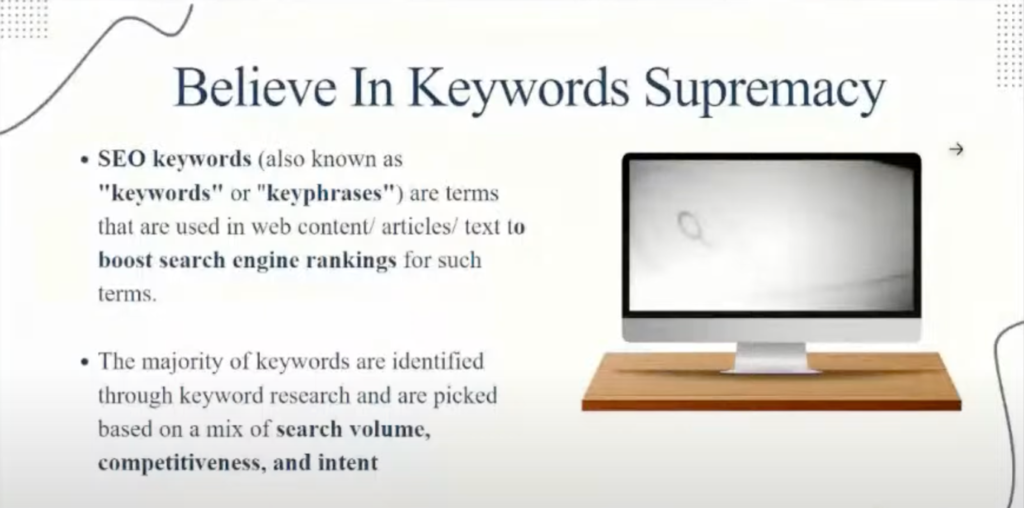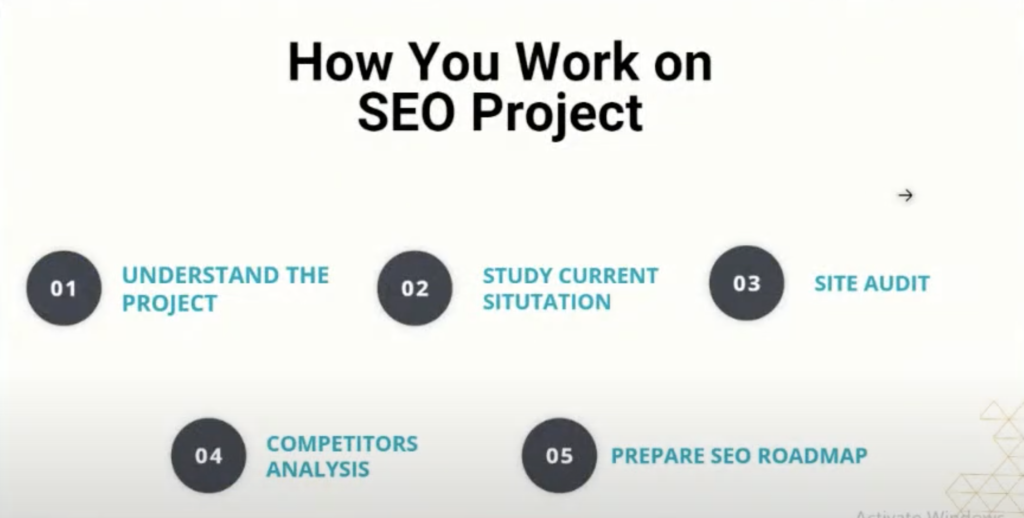As well-established SEO experts, we often find ourselves focusing on advanced strategies and the newest, latest-and-greatest techniques. However, we rarely find ourselves looking back at the fundamental principles that form the foundation of effective SEO, even if we convince ourselves that we remember them. This article aims to provide a quick refresher on those essential SEO basics. Through revisiting the core concepts, such as why SEO is important, how to work on an SEO project, off-page SEO, and many other principles which can make or break success. So, let’s take a few steps back and remind ourselves about the basics that are essential for sustaining any long-term success in an otherwise rapidly advancing world of search engine optimization, drawing on a recent talk between the Serpzilla team and SEO expert Pranav Jha for inspiration.
Is SEO Important?
For many, SEO is clearly understood as a cornerstone of online visibility, yet there are often times whereby companies can overlook it’s potential success due to the fact that it doesn’t always yield immediate results. According to Pranav, these results can take six months to a year to become noticeable, yet this doesn’t mean that SEO shouldn’t stand as the bedrock for any digital marketing effort. Strategies that strike quick wins most often do not lead to sustainable success. Put simply, SEO is a long-term investment that steadily yet stably enhances a website’s search ranking, thus driving organic traffic and building brand credibility. Think about it – do you even click past the first page of results on Google, or do you already trust a website within these results?
At Serpzilla, we understand that any delay in seeing tangible results can be unmotivating, leading many digital marketers to abandon SEO principles, or at the least, put them on the back burner. However, those who persist and maintain a consistent SEO profile are rewarded with long-term, sustainable growth, authority, and a key competitive edge in an already crowded digital sphere. Understanding and embracing the nature and importance of playing the long game is crucial for reaping it’s long-lasting benefits, making it an essential aspect of any successful digital marketing plan.

Striking the balance: Maintaining Keyword Supremacy
In his talk, Pranav states that he believes in keyword supremacy – as an SEO expert, Pranav is right – keywords form the foundation of indicating the relevance of your content to search engine providers. Utilizing effective keyword research should identify terms and phrases that your target audience uses, allowing you to focus your content alongside their search intent. Focus on prioritizing high-value keywords – those that contain a balance of both search ranking and competition – this is essential for maximizing both visibility and traffic. Successfully putting these keywords organically into your content, or meta tags, and headings can increase your site’s relevance and ranking potential. By putting a focus on keyword supremacy, you ensure your website meets user needs and search engine criteria, driving organic growth and maintaining a competitive edge in your niche.

Enhancing SEO with E-E-A-T Principles
According to Pranav, “if you are working on SEO, you have to follow E-E-A-T” – this stands for Experience, Expertise, Authoritativeness, and Trustworthiness, all of which are essential factors in Google’s search quality guidelines when writing quality content for your site:
– Experience: Examine the first-hand knowledge or involvement of the content creator with the subject matter, making sure that content is informed by real-world expert understanding.
– Expertise: Understand the depth of knowledge and skills in the specific field, indicating that the content creator is knowledgeable and skilled.
– Authoritativeness: This factor considers the credibility and recognition of the content creator, website, and associated individuals, establishing you as a reputable authority.
– Trustworthiness: Focuses on the reliability and accuracy of the content being written and created, ensuring it provides value and truth to your audience.
By emphasizing E-E-A-T, your site can improve its credibility and search rankings. High-quality content that showcases genuine experience, expertise, and authority will build trust with both users and search engines, further enhancing visibility and user engagement. Ensuring your website adheres to E-E-A-T principles is therefore key for longer SEO success, particularly in a world where quality and reliability are paramount.
Preparing Your SEO Roadmap

Before diving into the implementation of SEO strategies, Pranav provides us with a great five step process that can help you to lay an SEO roadmap. It’s crucial to lay a solid foundation through meticulous planning and analysis. Below we offer a step-by-step guide to preparing your SEO roadmap:
1. Understand the Project: Begin by comprehensively analyzing and understanding the goals and objectives of your SEO efforts. Whether you want to increase organic forms of traffic, improve rankings, or enhance online visibility, clarity on goals can help to drive the entire process.
2. Study Your Current Situation: Evaluate your current performance using GA4 and focus on areas for improvement. This may include analyzing your keyword rankings, traffic sources, conversion rates, and any existing SEO strategies already being implemented.
3. Conduct a Site Audit: A deep and thorough site audit is essential in uncovering things such as technical issues, content gaps, and opportunities for optimization. Tools like Google Search Console, SEMrush, or Ahrefs can professionally help to identify issues such as broken links, page load speeds or mobile usability and accessibility issues.
4. Competitor Analysis: Analyzing competitors will provide valuable insights into their SEO strategies and uncover opportunities towards your own optimization efforts. Be sure to identify their strengths and weaknesses in keyword targeting, content quality, backlink profiles, and overall digital presence. What is working for them, and are you already implementing it?
5. Finalizing Your Roadmap: Next, it’s time to consolidate these findings from the previous steps into a comprehensive SEO roadmap. Prioritize tasks based on their impact and feasibility, set measurable objectives with clear KPIs, and establish a long-term timeline for implementation. This roadmap will then serve as your blueprint for executing SEO strategies effectively.
By following these steps meticulously, you ensure that your SEO efforts are strategic, data-driven, and aligned with your brand’s objectives, setting a landscape for both sustainable growth and visibility in SERPs (Search Engine Results Pages).
A Few Extra Tips for Your SEO Journey, According to Experts
Whilst summarizing the basics, Pranav also offered Serpzilla subscribers a few final tips in order to maximize success. Below, we are able to share them with you:
– Invest in SEO: Make sure your marketing and financial departments are able to allocate sufficient resources and budget for your SEO efforts, thus guaranteeing long-term success. Remember, the spend on in-house SEO efforts is minimal compared to other popular digital marketing techniques, such as guest posting and link building, or hiring a third-party agency.
– Be Patient: As aforementioned, SEO takes time to see impactful results; consistent effort and patience are key to seeing improvements. Over the first few months, you may be uninspired by the fact that your page still sits on the fourth or fifth page of results, but be sure that with consistency and effort, your page will rise in rankings over a sustained period.
– Regular Audits: Conduct regular SEO audits to identify and rectify issues promptly, ensuring your site is always optimized.
– Track Performance: Monitor your SEO performance closely using tools like Google Analytics, Google Search Console, and SimilarWeb.
– Utilize SEO Tools: Leverage tools such as SEMrush, Ahrefs, SEO Minion, Keyword Everywhere, Screaming Frog for comprehensive SEO analysis and optimization.
By following these additional tips, you’ll enhance your SEO strategy’s effectiveness, stay informed about your site’s performance, and continuously improve your search engine rankings and visibility.







